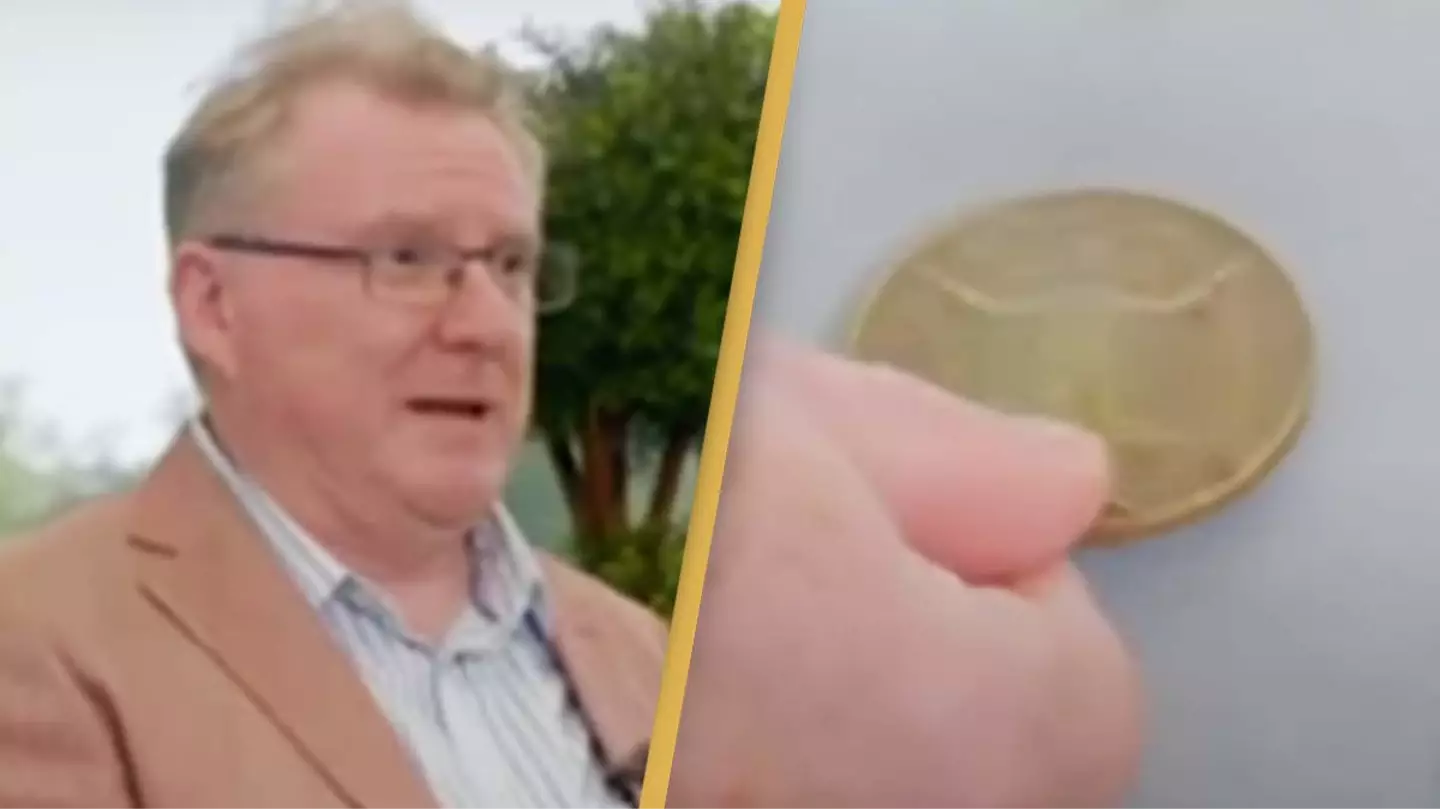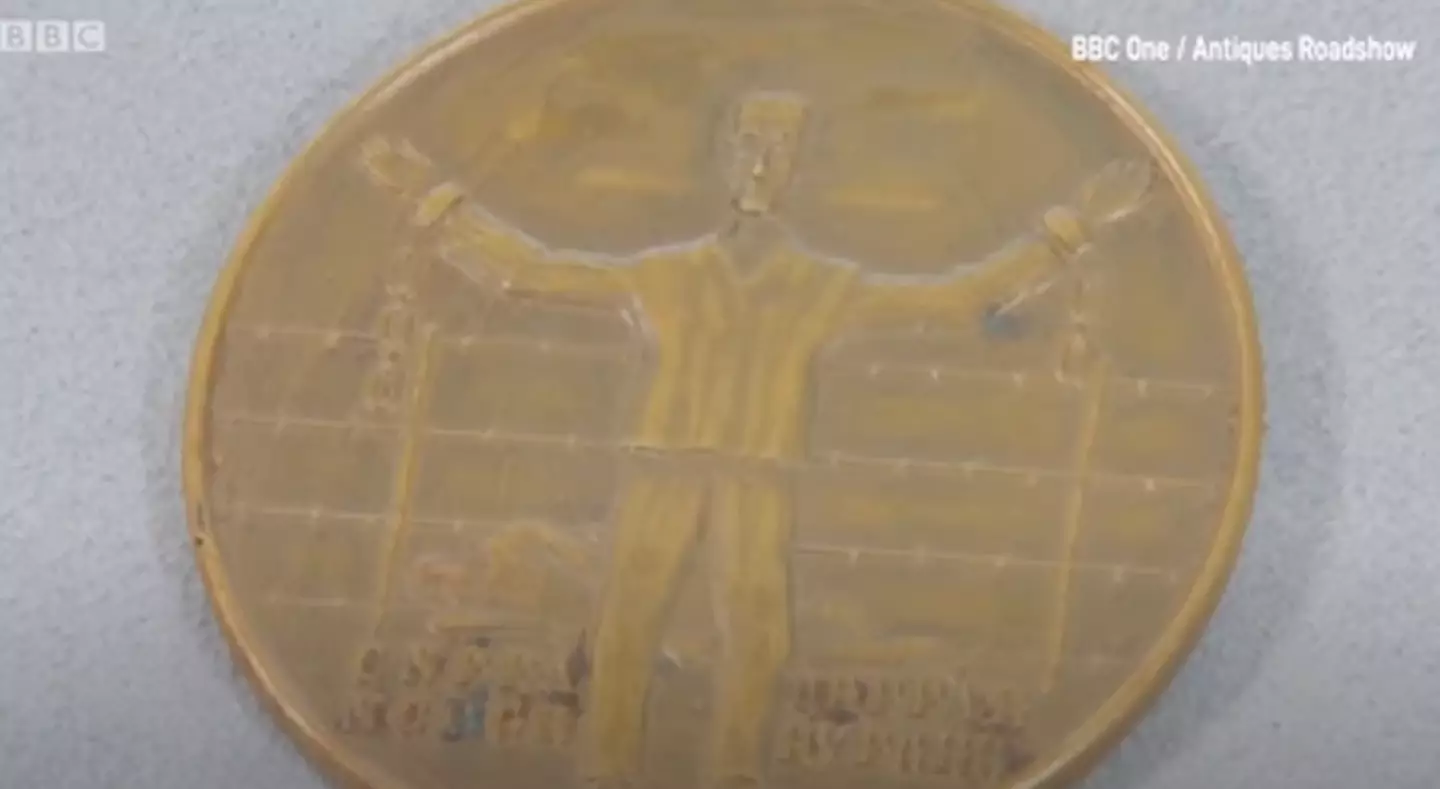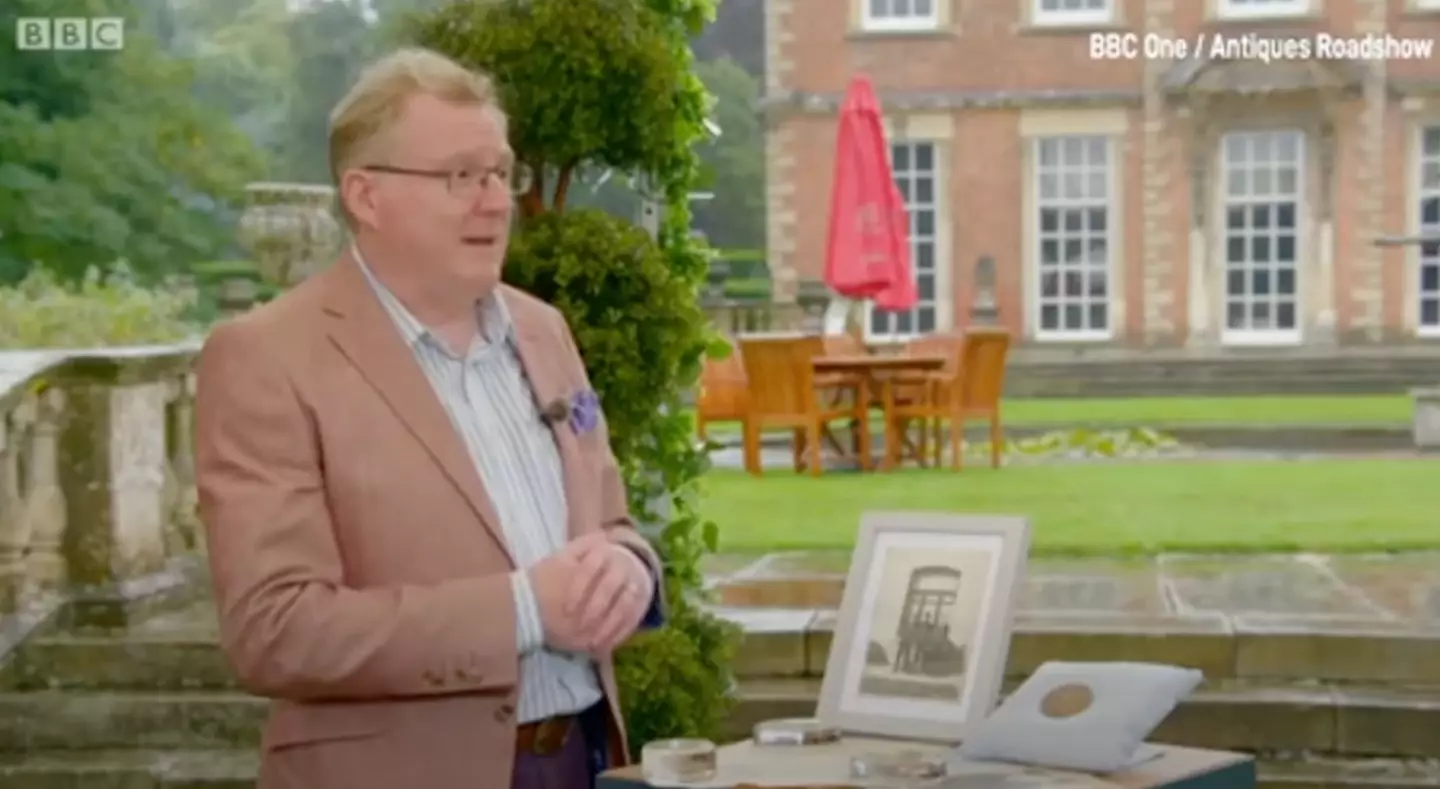
An antiques expert refused to value an item because of its 'distressing' history.
The BBC programme Antiques Roadshow sees people come on the show with various bits and bobs they've found lying around their house or storage unit in a bid to find out their history as well as typically have them evaluated to make some cash.
However, when a mom and daughter came on the show in 2021 when it came to Newby Hall in Yorkshire, England, military medals specialist Mark Smith refused to value their item.
The duo found the medal when they were sorting through a relative's belongings after they had sadly passed away earlier in the year.
Advert
The mom explained they found a medal that 'belonged to [her] grandad Tommy' and the origin and meaning of the medal has always been 'a bit of a mystery'.
However, the mystery was quickly uncovered by Smith, who revealed the medal was made in 1955 and it wasn't awarded to Tommy but 'given to him as a present'.
But what could be so dark about a 'present'?

Well, Smith explained the medal signified Tommy was affiliated with a 'very rare group of people' because they are 'concentration camp survivors'.
Advert
"Now this is in Belgium and this is a place [...] which is just outside Brussels and like all other concentration camps it's just as horrible. It had two gas chambers, it had firing post to execute people, it had gallows to hang people and it had torture chambers. And it's still there.
"Now, your medallion, is the 10th anniversary medal for the liberation of concentration camps and they were given to people - Belgians - who had been in concentration camps," he said.
On the front of the medal, Smith noted there's an image of 'a prisoner wearing a concentration camp uniform' and on the back, there's a triangle with a 'B' which is the 'badge that was sewn on the concentration camp uniform to show that you were Belgian'.
"It could have a 'P' for Polish. And then the color indicated what you were actually in prison camp for. So if the triangle is yellow, you're Jewish, if it's black, you're a political prisoner, if it's pink, it's a homosexual. It's a terrible regime," he said.

The expert added that in 1955, 'a program was started to record the names of everyone who had perished in the Holocaust and they're still doing it to today'.
Advert
"I think they're up to about four-and-a-half million names now but that's when it started and I have a felling that that's what this is for," he says.
Pointing to a photograph of a man that the woman and her daughter had brought with them, he said: "This is the man who gave him the medal and it’s actually signed that he was in the underground forces, part of the resistance movement and he was also in a concentration camp."
Smith resolved: "[...] Now, we always give you a valuation on the Antiques Roadshow, but we don't give valuations for Holocaust things because there is no price you can put on what someone went through to be awarded that medal.
"So I can’t tell you what it’s worth but now you know what it is, I hope you think it was worthwhile coming to the Antiques Roadshow."
Topics: Entertainment, Film and TV, Money, UK News, World News, BBC, Military